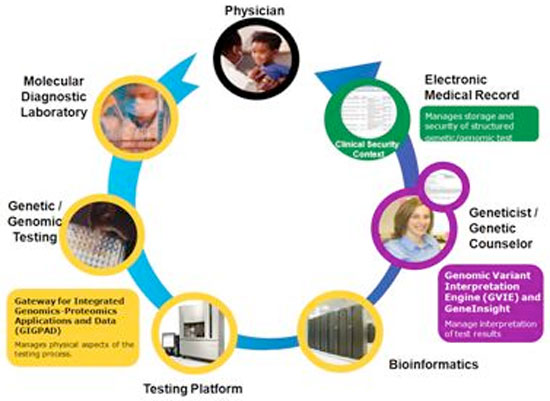The Promise Of
Molecular Diagnostics - page 2
A multidisciplinary approach is needed
Most clinicians have neither the training nor the time to assess the clinical significance of variants that have been identified in their patients.
For this reason, molecular diagnostic laboratories typically employ genetic professionals who interpret test results and produce a text report describing the significance of any genetic variants identified.
The process of generating this report can be time-consuming and expensive, so streamlining and automating portions of the process through computers (bioinformatics) can be valuable. Bioinformatics can also help standardize result reporting by reducing variability between the ways different geneticists might interpret the same result.
When test results are sent to the electronic medical record (EMR), it is useful to capture interpretations in structured form in addition to the genetic variants themselves. Capturing structured interpretations requires bioinformatics support during report generation.
 |
| Image courtesy of Health & Human Services.gov news |



